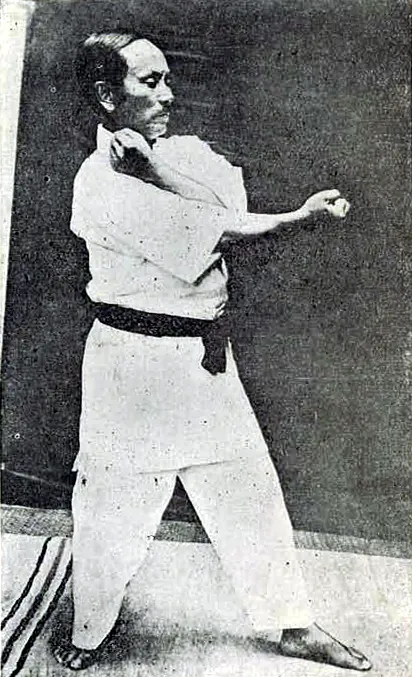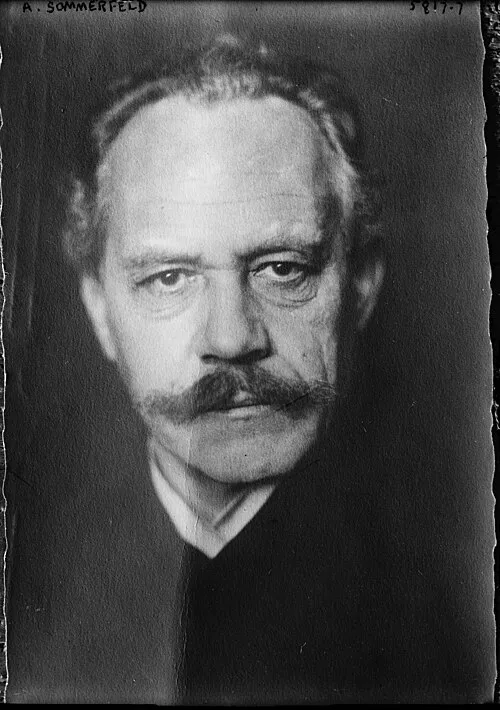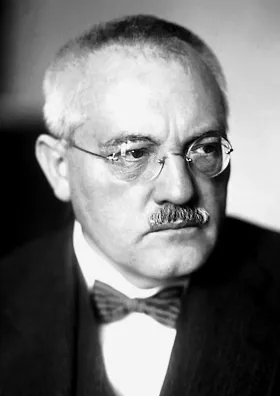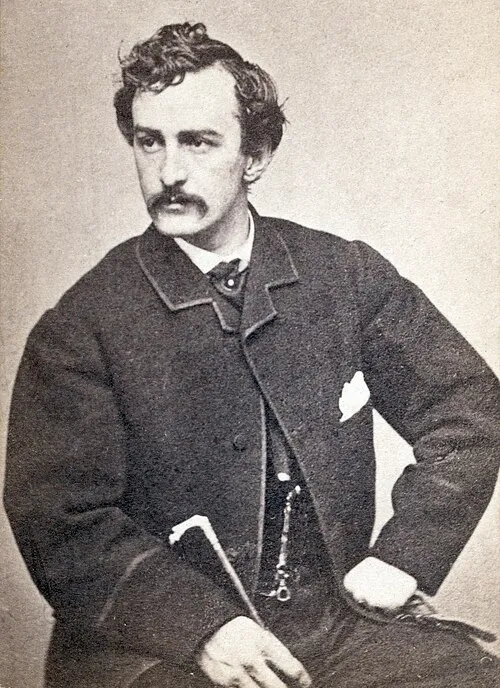
Name: Gichin Funakoshi
Born: 1868
Died: 1957
Nationality: Japanese
Profession: Martial Artist
Contribution: Founded Shotokan Karate
1957 – Gichin Funakoshi, Japanese martial artist, founded Shotokan (b. 1868)
In the quietude of a dojo, where the echoes of footfalls and the sharp intake of breath intertwine with tradition, Gichin Funakoshi, a revered figure in Japanese martial arts, breathed life into Shotokan. Born in 1868 on Okinawa Island a land known for its rich history of martial disciplines his journey was nothing short of extraordinary. However, it wasn’t merely his birthplace that shaped him; it was the tumultuous world around him, one brimming with cultural exchanges and burgeoning philosophies.
Funakoshi’s early days were steeped in hardship. Raised during a time when Okinawa was still grappling with foreign influences and political changes, he began practicing karate at a young age under the guidance of great masters like Anko Itosu. This apprenticeship was not merely about mastering punches and kicks; rather, it was about forging character a philosophy he would carry throughout his life. Perhaps what distinguished him from many others was his profound understanding that karate transcended physical prowess; it embodied principles of respect, humility, and personal growth.
However, destiny had greater plans for Funakoshi than to remain a local practitioner on his island. In 1901, after demonstrating Okinawan karate before a crowd in Japan an event that would serve as a pivotal moment he made an indelible mark on the mainland's martial arts landscape. Yet this first encounter brought its own challenges; many viewed this new form with skepticism or even disdain. Ironically, what should have been a triumphant introduction became an uphill battle to gain acceptance for something so integral to his identity.
Despite facing criticism and cultural barriers as he sought to establish karate as both an art form and discipline in Japan's predominantly judo-focused society, Funakoshi persevered relentlessly. His efforts culminated in 1936 when he officially founded Shotokan Karate-do the name derived from "Shoto," meaning 'pine wave,' which reflected his pen name and "kan," meaning 'hall.' Each aspect carried deep significance: just like pine trees bending gracefully to winds yet standing resiliently firm against storms a metaphor for his teachings.
This newly birthed style emphasized kata , kumite (sparring), and basic techniques each infused with philosophical depth that resonated beyond mere combat efficiency. Who knows how many students found solace in these practices? The dojo became more than just training grounds; they transformed into sanctuaries where individuals sought harmony within themselves amidst chaotic societal changes.
As World War II loomed ominously over Japan and indeed much of Asia it created yet another layer of complexity for Funakoshi’s mission. While other masters might have succumbed to despair or isolationism due to national turmoil surrounding them during this volatile era... Funakoshi chose resilience! He believed passionately that karate could unite people across divisions caused by war and strife.
By 1957 the year marking both triumphs within Shotokan itself but also reminding us poignantly about mortality Funakoshi's legacy blossomed fully despite personal tragedies along the way: losing loved ones during wartime; grappling always between authenticity versus commercialization within martial arts today! That very year saw him invited internationally while receiving accolades for contributions made toward enhancing human potential through movement!
The irony lies vividly here: while some practitioners continued chasing trophies or fame alone... others recognized deeper meanings behind every punch thrown! As crowds gathered worldwide at various demonstrations showcasing Shotokan Karate they witnessed firsthand how physical action mirrored inner transformations occurring deep within participants’ minds!
This shift wasn’t lost on future generations either martial arts enthusiasts today often cite Funakoshi’s teachings as foundational pillars guiding their journeys toward self-discipline development even outside dojos! Perhaps one can argue this speaks volumes regarding relevance intact decades later amid rapid societal shifts dominating modern contexts!
The authenticity woven through every lesson drawn from Gichin Funakoshi's teachings extends far beyond mere technique mastery alone it encapsulates timeless wisdom urging practitioners towards finding balance within turmoil existing externally... And so it's no surprise countless tales surface recounting moments where individuals credit their resilience gained via engagement inside dojos filled with sweat alongside camaraderie shared amongst peers honing skills together over years spent training diligently!
His death did not mark an end but rather became symbolic groundwork laid forth ensuring each practitioner honored ethos rooted deeply inside Shotokan through commitment to maintain sincerity towards cultivating peace mindfully alongside physically challenging oneself repeatedly while striving toward becoming better versions daily...
This essence embodies what remains undeniably alluring about traditional martial arts today: providing glimpses into heritage entwined through spirited perseverance amidst trials encountered throughout life itself! History recalls vividly fond memories celebrating milestones achieved since inception propelled forward continuously until present day…
A testament perhaps lies hidden still among young enthusiasts venturing forth seeking truth beneath complexities found woven intricately throughout styles practiced worldwide today born directly influenced by efforts undertaken years prior led courageously by none other than Gichin himself all stemming from humble origins grounded firmly upon principles shared equally regardless respective backgrounds lived out pursuing similar goals ultimately striving toward enlightenment attained collectively together united boundlessly...
Early Life and Influence
Funakoshi was born on November 10, 1868, in the Shuri district of Okinawa, a region known for its historical significance in martial arts. His first teacher was Yasutsune Azato, a master of Shuri-te, one of the original styles of karate. Under Azato's guidance, Funakoshi honed his skills and developed a deep understanding of karate's philosophy and techniques. He was also influenced by other masters, including Soken Matsumura, which equipped him with a comprehensive grasp of the martial discipline.
Introduction of Karate to Japan
In 1921, Funakoshi moved to Tokyo to demonstrate karate at a martial arts exhibition. This marked the beginning of karate's popularity in Japan. His ability to teach karate to Japanese students was unparalleled, and he successfully bridged the cultural gaps that existed at the time. Funakoshi began teaching at various universities, including Takushoku University, leading to the establishment of karate as a formal martial art in Japan.
Establishment of Shotokan
In 1936, Funakoshi officially named his style Shotokan, which translates to "the hall of Shoto" – a reference to his pen name, Shoto, meaning “waving pines.” The name encapsulated his philosophy of karate as a lifelong discipline, combining physical training with moral and ethical development. Shotokan is characterized by its deep stances, powerful strikes, and a strong emphasis on kata, pre-arranged forms that encapsulate various techniques and principles.
Philosophy and Teaching
Funakoshi’s approach extended beyond mere self-defense; he believed in karate as a way of life. He emphasized virtues such as respect, humility, and perseverance. His famous saying, "The ultimate aim of karate lies not in victory or defeat, but in the perfection of the character of its participants," highlights his deep commitment to the philosophical aspects of martial arts. Funakoshi wrote several books on karate, including "Karate-Do: My Way of Life," which remains a crucial text for understanding the principles of Shotokan karate.
Legacy and Influence
Gichin Funakoshi passed away on April 26, 1957, but his legacy continues to thrive. Shotokan karate is practiced in dojos across the globe, with millions of practitioners carrying forward his teachings and values. Organizations such as the Japan Karate Association work to preserve and promote his philosophies and methodologies. Funakoshi's influence also extends to various martial arts forms, where his ideals shape practices and attitudes.





